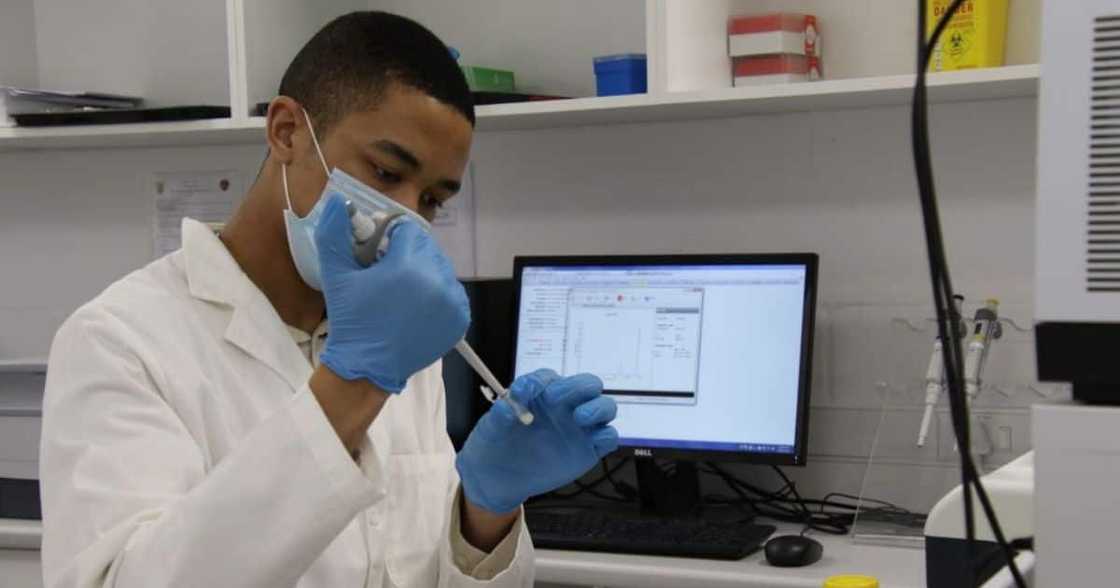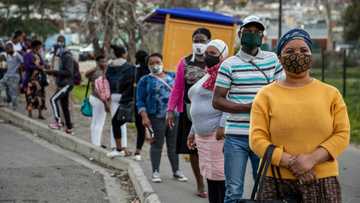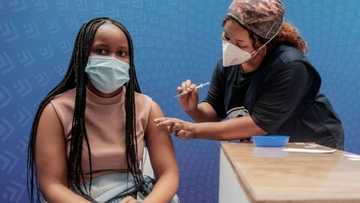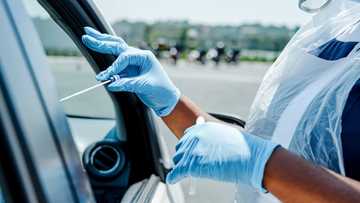Covid19 in 2021: The Year of Variants, Vaccines, Waves and Travel Bans
- Covid-19 was one of the most reported on topics of 2021 because of different variants, vaccines, waves of infection and travel bans
- President Cyril Ramaphosa announced that the government has proposed a vaccine mandate but no further details have been shared yet
- The Omicron variant raised fears last month and caused South Africa to be placed under travel bans by many countries
PAY ATTENTION: Click “See First” under the “Following” tab to see Briefly News on your News Feed!
JOHANNESBURG - Covid-19 has been in the news all year due to new variants, vaccine policies, waves of infection and travel restrictions. Briefly News takes a look at 2021's top coronavirus stories.
2021 saw South Africa begin its Covid-19 vaccine rollout. With the rollout came plans for possible vaccine mandates. Business for SA(B4SA) is a South African lobby group that has urged President Ramaphosa to make it compulsory for workplaces to allow access for vaccinated people only.
B4SA's suggestion follows the president's announcement on 28 November night that vaccine mandates will soon be implemented at certain venues and for specific activities, following task team meetings. However, no official vaccine mandate has been announced by the government yet, but is expected for 2022.

Source: Getty Images
Omicron requires triple vaccine protection, 75% more protection from boosters
In November, a new variant, Omicron was discovered and it was found that vaccinated people are less susceptible to having severe cases of it. UK data claims that people who have had a booster shot following their Covid-19 vaccine are 70% to 75% more likely to be protected against the Omicron variant.
PAY ATTENTION: Never miss breaking news – join Briefly News' Telegram channel!
The Pfizer vaccines, which consists of two vaccine doses taken at least six weeks apart, does not offer enough protection against Omicron's symptomatic infection. Soon after taking the booster, which acts as a third vaccine dose, participants in the study showed increased immunity.
The data was collected from the UK's booster jab drive in an effort to combat the effects of Omicron due to fears over its highly transmissible nature. The UK study included 581 participants who had the Omicron variant of Covid-19.
New study raises hopes about Omicron, SA scientists say it's milder
A South African study has shown that Omicron is less severe than the Delta variant. The study says that people who have the new variant are 80% less likely to require hospitalisation.
Professor Cheryl Cohen, a co-author of the study and the National Institute for Communicable Diseases' (NICD) respiratory disease unit's leader, said that those who have been hospitalised as a result of Omicron generally have milder symptoms.
Dr Waasila Jassat, a colleague of Prof Cohen at the NICD, said that so far, 83% of the patients who have been hospitalised during the fourth wave have not been vaccinated against Covid-19. Jassat further stated that 87% of Covid-19-related deaths in hospitals during the current wave were people who are not fully vaccinated.
South Africans unmoved by UK's decision to end travel ban
Fears over the Omicron variant and fourth wave caused many countries, including the United Kingdom (UK), to place travel bans on several southern African countries. The UK's government decided to cancel its travel ban red list that bars Southern African country citizens and other countries from travelling to the UK.

Read also
Study finds wearing masks has life saving potential, countries with mask policies had fewer Covid deaths
The UK also cancelled the requirement for travellers who come from the 11 high-risk countries who enter the country to undergo quarantine in a hotel for 10 days. Quarantining at a recognised quarantine UK hotel would cost travellers between R50 000 per person and R67 000 for couples for the 10-day stay.
Travellers will be allowed to quarantine at a hotel of their choosing according to the new policy. UK Ministers believe removing the red list is the right step because the stats show that the Omicron variant cases are doubling every two to three days.
Bheki Cele plans to enforce curfew on New Year's Eve, issues drinking warning
In other news about Covid-19, Briefly News previously reported that Bheki Cele, the police minister, has threatened those who wish to party all night on New Year's Eve by saying that the South African Police Service (SAPS) will enforce the 12 pm curfew.
Cele said that one measure that may be taken to punish those who disobey the curfew is that the police will confiscate alcohol, as they believe people will not want to carry on partying without booze.
Cele previously destroyed an estimated 20 000 litres of alcohol, which gave him the nickname on social media, "Minister of Alcohol." SAPS confiscated the liquor from stores and bars who were selling alcohol without a licence. Cele says that there is another 50 000 litres which he wants to have destroyed, but his request is pending approval.
Source: Briefly News



